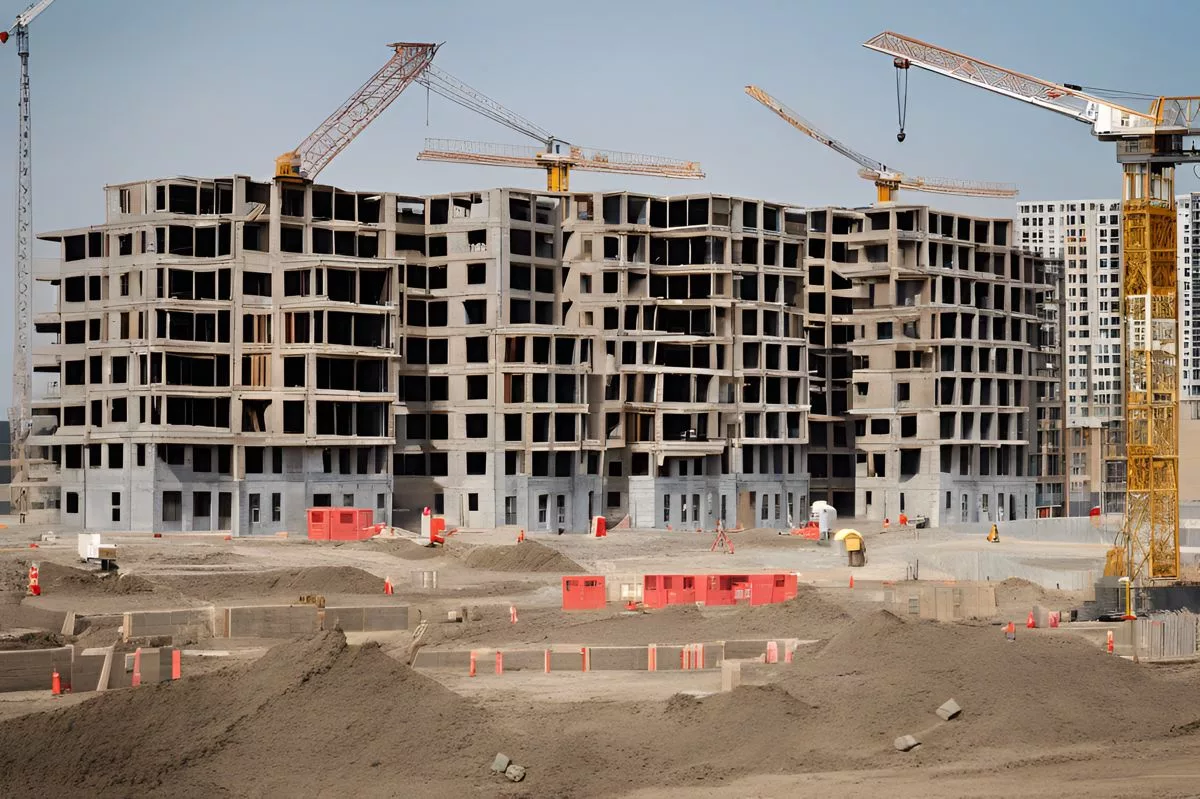The Bromwell Street eviction case in Cape Town is a dispute between residents and a private owner, which has become a citywide concern. Residents demand government-provided emergency housing in specific regions when facing private eviction. The case challenges the feasibility and reasonability of such an obligation and poses a significant strain on public resources. Cape Town’s housing policy champions social housing on city land and has produced over 3,500 units, with more properties being prepared for release. The case’s implications will influence future discourse on housing policies and strategies worldwide.
What is the Bromwell Street eviction case?
The Bromwell Street eviction case is a private eviction dispute that has become a citywide concern in Cape Town. It involves the demand from residents for the government to provide temporary emergency housing in specific regions such as Salt River, Woodstock, or the Central Business District (CBD) when facing private eviction. The case challenges the boundaries of feasibility and reasonability and poses a significant strain on public resources.
A Legal Standoff: From Root to Recognition
The spotlight was on Cape Town on February 27, 2024, as the city made its stand before the Constitutional Court regarding a private eviction dispute, popularly known as ‘the Bromwell Street’ eviction case, that had become a citywide concern.
For a clearer context, we travel back to 2017 when the High Court approved the expulsion of residents from a property privately owned on Bromwell Street. The decision ignited a protest from the inhabitants who had considered the property their home and began insisting that the government provide temporary emergency housing in specific regions such as Salt River, Woodstock, or the Central Business District (CBD). All alternative solutions proposed by the city were dismissed, leading to a legal tussle that eventually found its way to the Constitutional Court.
The core of the residents’ demands involves a substantial obligation from the government, urging it to facilitate emergency housing in a specific locality, covered by public expenses, initiated by any degree of private eviction. Such an obligation questions the boundaries of feasibility and reasonability and poses a significant strain on public resources.
An Approach to Sustainability: Cape Town’s Housing Policy
In contrast to the residents’ demand, Cape Town’s housing policy adopts a more enduring method. It champions the concept of social housing on available city land in vital Cape Town regions rather than setting it aside for temporary emergency housing. This approach has led to the release of various city-owned properties in central Cape Town to social housing developers, including Pine Road, Dillon Lane, Pickwick in Woodstock, Salt River Market, and the currently tenanted Maitland Mews development. This strategy has produced over 3,500 units, with more properties such as New Market Street, Woodstock Hospital, Earl Street, all in Woodstock, and Fruit & Veg in the CBD, being prepared for imminent release.
Further support for the city’s stance came from the Supreme Court of Appeal (SCA) in February 2023. The SCA backed Cape Town’s approach to adjust its housing program to mitigate the impact of gentrification among other issues, mainly by identifying Woodstock, Salt River, and neighboring areas as suitable for creating affordable social housing. The court found no fault with the city’s objective of constructing affordable residences in the inner city, viewing it as a strategy to resolve the legacy of apartheid spatial planning.
Legal Perspective: The SCA’s Standpoint
Reiterating this perspective, the SCA referenced a Constitutional Court precedent that stated, the “Constitution does not guarantee a person a right to housing at government expense at the locality of his or her choice.” The court affirmed that implementing such a guarantee would impose an “impossible burden” on the state. Additionally, it noted the lack of any legal basis provided by the applicants, represented by Ndifuna Ukwazi, to substantiate their constitutional challenge against the city’s housing program.
While eagerly anticipating guidelines from the Constitutional Court, the city of Cape Town is ready to evaluate the quantity of residents still occupying Bromwell Street, including their socio-economic conditions. This study will play a crucial role in identifying the options for alternative emergency accommodation that can be proposed.
The Saga Continues: Implications and Future Directions
At its core, the Bromwell street eviction case offers a profound narrative about the intricate interplay of housing, state duties, and citizen expectations. It calls for a delicate equilibrium between addressing the immediate needs of evicted residents and ensuring the sustainable growth of the city’s housing infrastructure. As the case continues to unfold in the legal framework, it is set to influence the future discourse on housing policies and strategies in Cape Town and beyond.
In conclusion, as the city and its residents face off in a court of law, the nuance of housing policies, state responsibilities, and the rights of the citizens comes to the fore. Only time will reveal how this saga influences future housing strategies, not just in Cape Town but across the globe.
1. What is the Bromwell Street eviction case?
The Bromwell Street eviction case is a private eviction dispute that has become a citywide concern in Cape Town. It involves the demand from residents for the government to provide temporary emergency housing in specific regions such as Salt River, Woodstock, or the Central Business District (CBD) when facing private eviction. The case challenges the boundaries of feasibility and reasonability and poses a significant strain on public resources.
2. What is Cape Town’s housing policy?
Cape Town’s housing policy champions social housing on available city land in vital regions rather than setting it aside for temporary emergency housing. This has led to the release of various city-owned properties in central Cape Town to social housing developers. This strategy has produced over 3,500 units, with more properties being prepared for release.
3. What did the Supreme Court of Appeal (SCA) say about Cape Town’s housing policy?
The SCA backed Cape Town’s approach to adjust its housing program to mitigate the impact of gentrification among other issues, mainly by identifying Woodstock, Salt River, and neighboring areas as suitable for creating affordable social housing. The court found no fault with the city’s objective of constructing affordable residences in the inner city, viewing it as a strategy to resolve the legacy of apartheid spatial planning.
4. What was the SCA’s standpoint on the residents’ demand for emergency housing?
The SCA referenced a Constitutional Court precedent that stated, the “Constitution does not guarantee a person a right to housing at government expense at the locality of his or her choice.” The court affirmed that implementing such a guarantee would impose an “impossible burden” on the state. Additionally, it noted the lack of any legal basis provided by the applicants, represented by Ndifuna Ukwazi, to substantiate their constitutional challenge against the city’s housing program.
5. What will happen now that the case is in the Constitutional Court?
The city of Cape Town is ready to evaluate the quantity of residents still occupying Bromwell Street, including their socio-economic conditions. This study will play a crucial role in identifying the options for alternative emergency accommodation that can be proposed.
6. What are the implications and future directions of the Bromwell Street eviction case?
The case offers a profound narrative about the intricate interplay of housing, state duties, and citizen expectations. It calls for a delicate equilibrium between addressing the immediate needs of evicted residents and ensuring the sustainable growth of the city’s housing infrastructure. As the case continues to unfold in the legal framework, it is set to influence the future discourse on housing policies and strategies in Cape Town and beyond.









